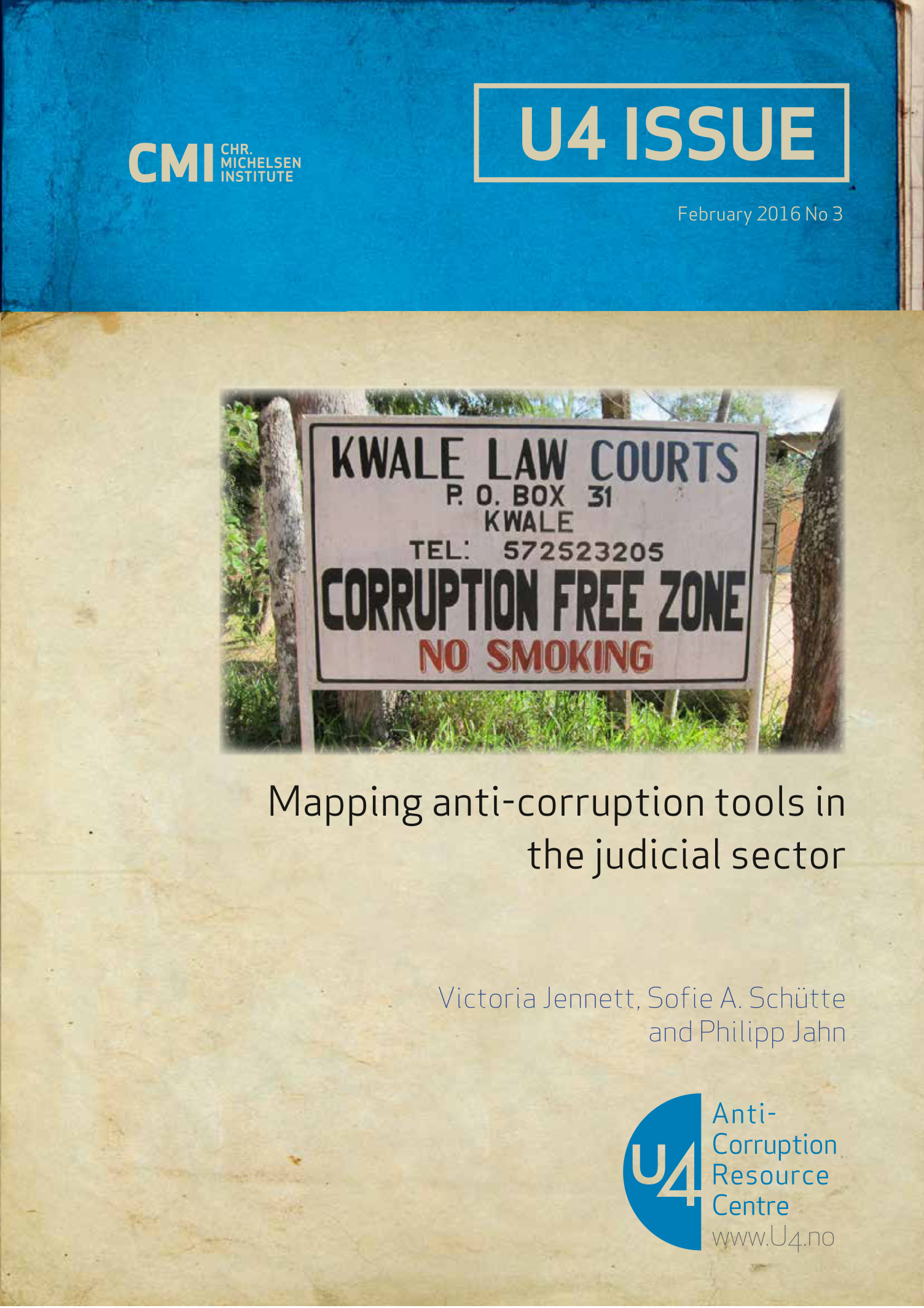U4 Issue
Mapping anti-corruption tools in the judicial sector
This U4 study investigates whether and how the judicial sector could benefit from anti-corruption measures that have proved useful in other sectors in improving the quality of the services they provide to users. Based on a survey and interviews among key informants in U4’s partner agencies in 2014, we found a variety of anti-corruption tools already included in the agencies’ bilateral judicial reform programmes. The tools are not frequently employed, yet, and they are sometimes implemented under a different label to avoid the sensitive implications of tackling corruption among those charged with upholding the law. Remarkable is the absence of support for the use of many control and oversight tools, budgeting and procurement tools, and some human resource instruments to prevent and detect corruption in the judicial sector.
The general perception of the survey respondents is that it is at least partly the lack of internal donor capacity and expertise in adapting existing anti-corruption tools to the judicial sector that underlies the absence of these instruments from bilateral judicial reform programmes. Closer collaboration and knowledge transfer between experts in the judicial sector and other sectors on oversight, human resources, and budgeting processes could help close this gap.

Cite this publication
Jahn, P.; Jennett, V.; Schütte, S. (2016) Mapping anti-corruption tools in the judicial sector . Bergen: Chr. Michelsen Institute (U4 Issue 2016:3) 40 p
Disclaimer
All views in this text are the author(s)’, and may differ from the U4 partner agencies’ policies.
This work is licenced under a Creative Commons Attribution-NonCommercial-NoDerivatives 4.0 International licence (CC BY-NC-ND 4.0)


